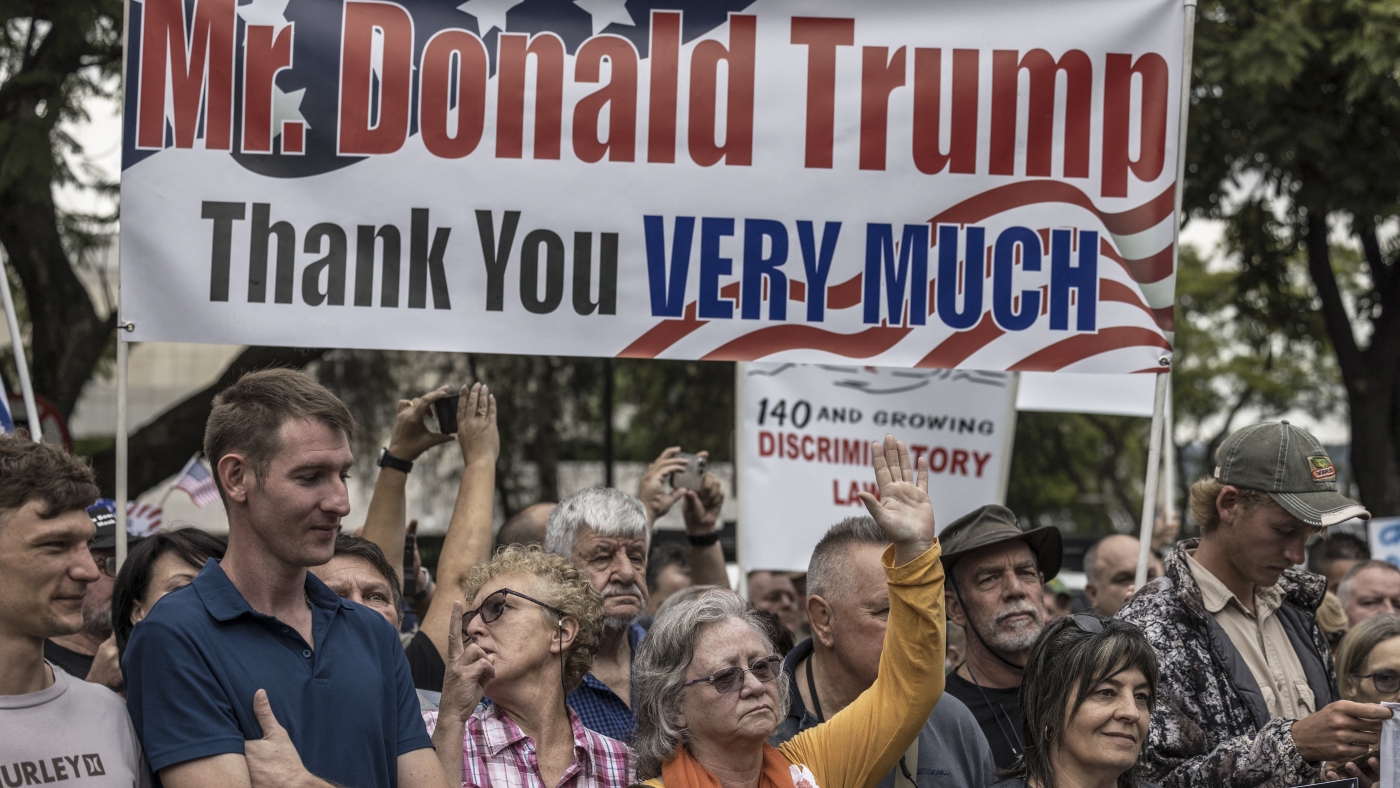“`markdown
The Paradox of Trump’s Refugee Policies: A Deep Dive into Selectivity and Controversy
Introduction
Few topics in modern U.S. immigration policy have sparked as much debate as the Trump administration’s approach to refugees. At its core lies a striking contradiction: while the general refugee program faced severe restrictions, a specific invitation was extended to white South Africans—Afrikaners—to resettle in the U.S. This selective openness raises critical questions about the motivations behind refugee policies, the criteria for persecution claims, and the broader implications for global humanitarian efforts.
The Afrikaner Exception: Policy and Precedent
In February 2018, President Trump signed an executive order encouraging Afrikaners to seek refuge in the U.S., citing South Africa’s land reform policies as discriminatory. This move was unprecedented, not just for its specificity but for its timing. The U.S. had already slashed refugee admissions to historic lows, with bans affecting tens of thousands of pre-approved refugees from conflict zones like Syria and Yemen. Yet, Afrikaners—a predominantly white minority—were fast-tracked, with the first group of 54 granted refugee status almost immediately.
Key aspects of this exception include:
– Legal Pathways: Afrikaners could apply through the U.S. Refugee Admissions Program (USRAP), seek visas, or claim asylum at ports of entry.
– Justification: The administration framed the order as a response to “race-based persecution,” though critics noted the lack of comparable urgency for non-white groups facing violence or displacement.
Persecution or Politics? Unpacking the Criteria
The U.S. government’s interviews with Afrikaner applicants focused on land disputes, crime rates, and alleged racism. However, this narrow lens ignored broader global refugee crises. For example:
– Contrast with Other Groups: Refugees from Central America fleeing gang violence or Rohingya escaping genocide faced heightened barriers, including prolonged vetting and outright bans.
– Legal Definitions: Under international law, refugee status hinges on persecution tied to race, religion, or political opinion. The Afrikaner case stretched these definitions, as South Africa’s land reforms targeted economic inequality, not ethnic cleansing.
Racial and Ideational Undercurrents
The policy’s racial dimensions were impossible to ignore:
– Selective Compassion: By prioritizing a white minority, the administration echoed far-right narratives about “white genocide” in South Africa—a claim debunked by experts like journalist Max du Preez, who called it “a political stunt.”
– Domestic Messaging: The move resonated with Trump’s nationalist base, reinforcing a broader agenda that linked immigration control to racial identity.
Reactions: From Gratitude to Backlash
Responses were polarized:
– Afrikaner Perspectives: Some welcomed the offer as escape from economic uncertainty; others rejected the victimhood narrative, arguing it misrepresented South Africa’s complexities.
– Global Criticism: Human rights organizations condemned the policy as hypocritical, noting that the U.S. accepted just 22,491 refugees in 2018—the lowest in decades—while making exceptions for a privileged minority.
The Road to Resettlement: Process and Privilege
Afrikaners benefited from streamlined processes uncommon for most refugees:
Conclusion: A Policy of Paradoxes
Trump’s Afrikaner refugee policy remains a case study in selectivity and symbolism. It exposed contradictions at the heart of U.S. immigration discourse:
– Humanitarian Ideals vs. Political Expediency: Refugee policies should prioritize need, yet this decision appeared driven by ideology and identity politics.
– Global Perception: The move strained diplomatic relations with South Africa and undermined America’s reputation as a haven for the persecuted.
Ultimately, the Afrikaner exception wasn’t just about who was let in—it was about who was kept out. In a world where displacement is at record highs, such policies risk eroding the very principles of equity and compassion that define refugee protection.
“`











